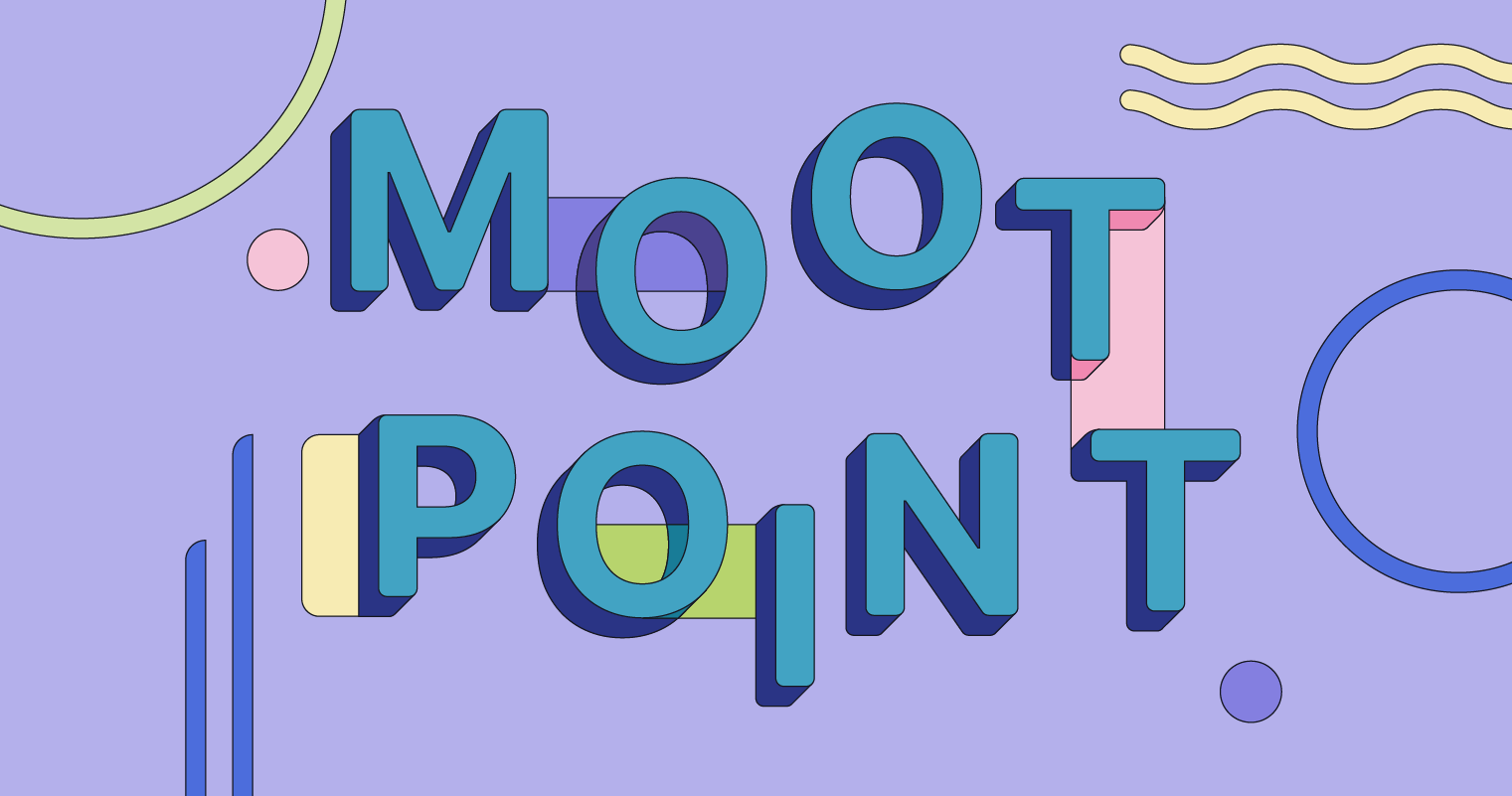Moot and academic meaning are two concepts that often arise in discussions related to education, law, and debate. Understanding these terms is crucial for students, educators, and legal professionals alike. In this article, we will delve into the definitions, applications, and significance of moot and academic meaning, providing a comprehensive overview that is beneficial for anyone interested in these topics.
The term "moot" has its roots in legal jargon, but its implications extend beyond the courtroom. It refers to issues that are open for discussion or debate, often in a hypothetical context. On the other hand, "academic meaning" pertains to the interpretation of concepts within an academic framework, focusing on the depth of understanding and critical analysis. By exploring these themes, we can appreciate their relevance in both academic and practical settings.
This article aims to clarify the meanings of moot and academic concepts, their historical context, and their present-day significance. We will also provide insights into how these concepts relate to various fields, including law, education, and critical thinking. Join us as we navigate through these essential ideas, enhancing your understanding and appreciation for moot and academic meaning.
Table of Contents
- Definition of Moot
- Historical Context of Moot
- Importance of Moot in Legal Education
- Definition of Academic Meaning
- Role of Academic Meaning in Education
- Impact of Academic Meaning on Critical Thinking
- Moot and Academic Meaning in Practice
- Conclusion
Definition of Moot
The term "moot" originally comes from the Old English word "mot," which means to meet or assemble. In modern usage, it refers to issues that are subject to debate or discussion, particularly in legal contexts. A moot point is one that is debatable or arguable but may have little practical relevance to the current situation.
Characteristics of Moot Points
- Debatable: Moot points invite discussion and differing opinions.
- Hypothetical: They often pertain to theoretical scenarios rather than practical outcomes.
- Relevance: While they may be interesting to discuss, they may not have real-world implications.
Historical Context of Moot
The concept of moot has a rich history, particularly in the context of legal education. In medieval England, moot courts were established as a means for law students to practice their skills in a controlled environment. These mock trials allowed students to argue cases before peers and faculty, simulating the experience of real court proceedings.
Evolution of Moot Courts
- Medieval England: Early moot courts served as training grounds for aspiring lawyers.
- Modern Era: Today, moot courts are integral to legal education worldwide, enhancing students' advocacy skills.
- International Competitions: Moot court competitions, such as the Philip C. Jessup International Law Moot Court Competition, showcase students' talents on a global stage.
Importance of Moot in Legal Education
Mooting plays a significant role in legal education for several reasons:
- Skill Development: Students develop essential skills such as legal research, writing, and oral advocacy.
- Critical Thinking: Mooting encourages students to analyze and argue complex legal issues.
- Confidence Building: Participating in moot courts helps students build confidence in their abilities to present and defend their arguments.
Definition of Academic Meaning
Academic meaning refers to the interpretation and understanding of concepts within an educational context. It emphasizes critical analysis, research, and the application of knowledge across various disciplines. Academic meaning is crucial for students as it shapes their ability to engage with content meaningfully and develop their own perspectives.
Elements of Academic Meaning
- Interpretation: Understanding the significance of concepts and their relevance to broader themes.
- Analysis: Critically evaluating information and forming reasoned conclusions.
- Application: Utilizing knowledge to solve real-world problems or generate new insights.
Role of Academic Meaning in Education
Academic meaning plays a vital role in the overall educational experience. It encourages students to engage deeply with material, fostering a love for learning and intellectual curiosity.
Benefits of Emphasizing Academic Meaning
- Enhanced Learning: Students who grasp academic meaning are more likely to retain and apply knowledge effectively.
- Critical Engagement: Encourages students to question assumptions and explore diverse viewpoints.
- Preparation for Future Challenges: Equips students with the skills necessary to navigate complex issues in their professional lives.
Impact of Academic Meaning on Critical Thinking
Critical thinking is an essential skill in today's information-driven society. Academic meaning helps cultivate this skill by teaching students to analyze information, evaluate sources, and draw informed conclusions.
Strategies to Foster Critical Thinking
- Encourage Questioning: Foster an environment where students feel comfortable asking questions and seeking clarification.
- Promote Discussion: Engage students in discussions that challenge their viewpoints and encourage them to articulate their reasoning.
- Implement Problem-Based Learning: Use real-world scenarios to encourage students to apply their knowledge and think critically.
Moot and Academic Meaning in Practice
Both moot and academic meaning have practical applications that extend beyond the classroom. In professional settings, these concepts are vital for effective communication, problem-solving, and decision-making.
Applications in Various Fields
- Law: Mooting provides lawyers with essential advocacy skills, while academic meaning helps them interpret and apply legal principles.
- Education: Educators use moot discussions to enhance student engagement and promote critical thinking.
- Business: Professionals apply moot and academic principles to negotiate, resolve conflicts, and make informed decisions.
Conclusion
In summary, understanding moot and academic meaning is essential for students, educators, and professionals alike. These concepts not only enhance critical thinking and advocacy skills but also prepare individuals for success in their respective fields. We encourage you to reflect on how these ideas can be applied in your own life and share your thoughts in the comments below. Feel free to explore our other articles for more insights and information.
Thank you for reading, and we look forward to welcoming you back for more engaging content!
Article Recommendations



